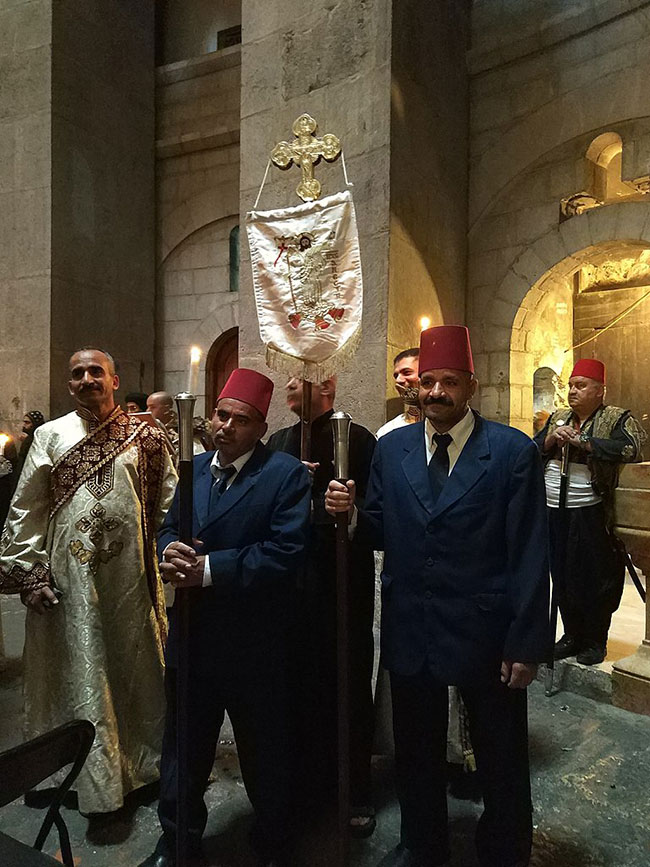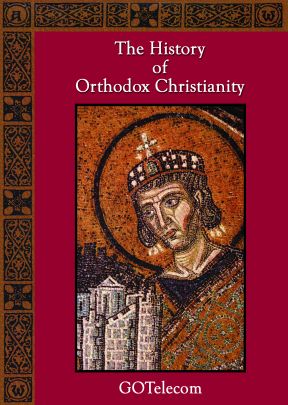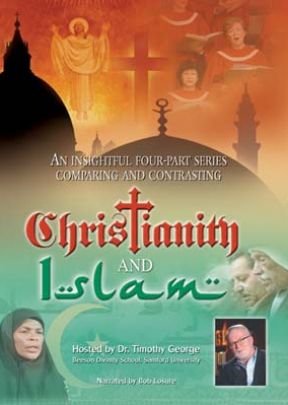RUDE NEW YEAR SHOCK FOR COPTIC CHURCH

[Orthodox Copts of Alexandria—TZivyA / [CC-BY-SA 4.0] Wikimedia]
New Year 2011 began with a rude shock for the Coptic Christians of Egypt.
Only ten percent of Egyptians are Christians. They suffer discrimination from the Muslim majority. Radical Muslim websites encourage violence against Christians and their churches. Not surprisingly, numerous attacks have occurred against Christian targets, especially at holidays.
Despite the potential for violence, only two soldiers and one policeman were detailed to the Saint Mark and Saint Peter Church in Alexandria (also called al-Qidiseen or Saints Church) for a New Year mass. A thousand Christians gathered for the celebration. Shortly after midnight, on this day, in the first minutes of the New Year, 1 January 2011, a shrapnel-packed bomb exploded, shredding limbs and bodies.
Amid the screams and wails of victims, religious leaders tried to calm the surging mass-goers with words, the sign of the cross, singing, and recitation. As security forces arrived, furious Christians invaded a nearby mosque and flung books into the street. When Christians and Muslims clashed, police at first stood by, then waded in to beat the Christians.
As a picture of the damage emerged, the world was informed that twenty-one people had died in the blast and about eighty others had been wounded. Within days the death toll was adjusted upward to twenty-three casualties and the count of those injured to over ninety. One of the dead was a bride-to-be, just days away from her wedding.
Christians protested and even rioted in the days that followed the bombing, demanding increased security and an end to institutionalized discrimination. Major complaints were that the government’s passivity in face of earlier attacks against Christians, and its daily bias against Copts, had emboldened would-be terrorists.
Although eyewitnesses alleged some Muslims stomped on body parts and jeered following the blast, most of Egypt's Muslims seemed appalled by the killing. The following Friday, at services in observance of the birth of Christ (Coptic Christmas is observed on the Feast of the Epiphany, January 6), Muslims, including two of President Hosni Mubarak’s sons, ringed churches to act as human shields. Naguib Sawiris, an Egyptian billionaire, offered a large reward for anyone who came forward with evidence against the perpetrators.
In spite of wreckage that suggested a car bomb, the government advanced a theory of a lone suicide bomber to fit its political narrative that Egyptians live in peaceful co-existence with one another. Authorities also claimed the hit was planned by outside forces. Al Qaeda, the Gaza-based Army of Islam, and even Israel’s Mossad were suggested as the instigators of the violence. However, leading Christian publications believed the culprits were home-grown terrorists. Months after the bombing, no one had been charged with participation in the crime or in its planning.
Meanwhile the Coptic community continued to experience discrimination. As with Christians throughout the Middle East, their percentage of the population was declining, in part because Christian monogamy produced fewer children than Muslim polygamy, and in part because Christians often emigrated in search of better opportunities.
—Dan Graves
----- ----- -----
Learn more about The History of Orthodox Christianity and about the relationship of Christianity and Islam in these DVDs
(The History of Orthodox Christianity can also be streamed at RedeemTV)
Christianity and Islam can also be streamed at RedeemTV







